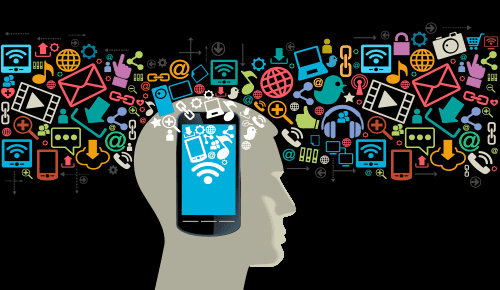
In the digital age, mobile applications, commonly known as apps, have become an integral part of our daily lives. From social networking to online shopping, banking, and health monitoring, apps have revolutionized the way we interact with technology and each other. This article explores the profound impact of mobile applications on society, examining both the positive transformations and the challenges they present.
The Rise of Mobile Applications:
The advent of smartphones and the subsequent development of app stores have paved the way for a surge in mobile app usage. Today, there are millions of apps available across various platforms, catering to every conceivable need and interest. The convenience and accessibility of apps have led to their widespread adoption, with billions of users worldwide relying on them for a multitude of purposes.
Enhancing Connectivity:
One of the most significant impacts of mobile applications is their ability to connect people across the globe. Social media apps like Facebook, Instagram, and Twitter have reshaped social interactions, allowing users to share moments, ideas, and information instantaneously. Messaging apps such as WhatsApp and Telegram have made communication more accessible and affordable, breaking down geographical barriers.
Transforming Industries:
Mobile applications have also had a transformative effect on various industries. In the realm of finance, banking apps have made transactions more convenient and secure, enabling users to manage their finances from anywhere at any time. In healthcare, telemedicine apps have expanded access to medical services, particularly beneficial in remote areas. E-commerce apps like Amazon and Alibaba have revolutionized shopping, offering consumers a vast array of products with just a few taps on their screens.
Education and Learning:
The education sector has seen a significant shift with the introduction of educational apps. These apps provide personalized learning experiences, catering to different learning styles and paces. They have made learning more accessible, allowing students to engage with educational content outside the traditional classroom setting.
Challenges and Concerns:
Despite the benefits, the proliferation of mobile applications has raised several concerns. Privacy and security are paramount, as apps often require access to personal data. There is a growing need for robust cybersecurity measures to protect users’ information from breaches and misuse.
Moreover, the addictive nature of some apps has led to concerns about mental health, particularly among younger users. The constant connectivity and the pressure to maintain a digital presence can lead to stress, anxiety, and a fear of missing out (FOMO).
The Future of Apps:
Looking ahead, the impact of mobile applications on society is set to grow even more profound. Advances in technology, such as augmented reality (AR) and artificial intelligence (AI), are being integrated into apps, offering new ways to engage and interact with the digital world. The potential for apps to improve lives and drive innovation is immense, but it is crucial to address the challenges they present to ensure a balanced and positive influence on society.
Conclusion:
Mobile applications have undeniably left a significant mark on society, changing the way we live, work, and connect. As we continue to navigate the digital landscape, it is essential to harness the power of apps responsibly, ensuring that they serve as a force for good, enhancing our lives while safeguarding our well-being and privacy. The journey of apps and beyond is an ongoing one, filled with promise and potential, as long as we remain vigilant and proactive in addressing the challenges that come with this digital revolution.